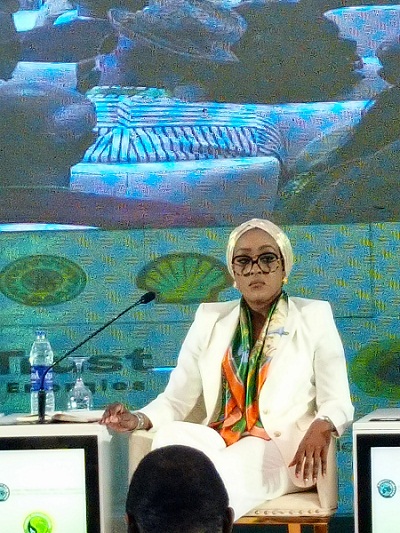Engr. Jennifer Adighije, CEO NDPHC
…GenCo was incorporated to drive NIPP and fast track initiative of government towards power generation.
-Commends President Tinubu for innovative ideas through effective policy making and regulation.
-Felix Douglas
The focus has been on energy transition and with Nigeria’s commitment to its transition towards sustainability; Niger Delta Power Holding Company (NDPHC) has been navigating gas supply constraint aligning it with roadmap for cleaner solution.
Speaking in a panel session on the theme: Policies and Innovation for Expanding Africa’s Energy Access at Nigeria International Energy Summit (NIES), Managing Director and CEO of NDPHC, Engr. Jennifer Adighije, asserted that the Generation Company (GenCo), was incorporated to drive National Integrated Power Project (NIPP) which was to fast track initiative of the government to scale up generation and transmission capacity.
Therefore, it is the express mandate of NDPHC to carryout intervention projects across the entire gas electricity ecosystem.
“And we have been doing that very well, and we’re still positioning strongly as the largest investor across the gas electricity ecosystem. NDPHC has ten generating power plants while seven are commercially operational. There is a system in place to upgrade the power plants from open cycles to combined cycles.”
She stated further that the GenCo transitions to rely on renewable energy resources, taking advantage of solar and tidal potentials. With the proceeds of sales of privatization of NIPP phase one, “we hope to quickly accelerate the execution of NIPP phase two.
Adighije explained further that the power sector is driven by demand and activities of the downstream electricity markets which would determine the capacity upstream.
The NDPHC boss commended President Bola Tinubu for numerous initiatives that have been put in place through effective policy making and regulation. For instance, the presidential metering initiative has addressed some major gaps in the downstream electricity market. The downstream electricity market is essentially driven by four key parameters: bidding and collection efficiencies and ATC losses with remittances from the Distribution Companies (DisCos) and quite a number of policy interventions to ensure these gaps are breached which will increase demand. “When the demand is increased on that end, we can also generate more and with improved capacity to secure gas to feed stock, improve liquidity in the sector which is our major concern.”
For Nigerians to have access to energy, Adighije said in addition to effective policy making and regulation, which is essentially key, there has to be decentralized electricity market leading to migration of other sub sectors.
The market is rapidly evolving with effective regulators. “Last year, there was an order mandating all electricity transition to bilateral trading, which has essentially opened up the market and has created so many opportunities yet untapped.”
“We can trade financially with eligible customers and electricity off takers and traders, and there are lots of opportunities for the gas and buyers who procure trading licenses and ensure that we can dedicate a significant portion of our stranded electricity.”
This stranded electricity cannot be commercialized due to issues arising from bottlenecks.
Notwithstanding there are so many opportunities.
Adighije called stakeholders to action across the electricity ecosystem to come up with strategic partnership that will ensure the President’s renewed hope agenda which is to advance access to electricity for vulnerable Nigerians.


Comment here